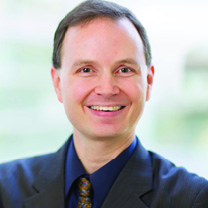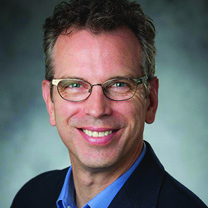
Why Do We Need Health Measurement Researchers?
Incorporating the patient voice in health research is critical to healthcare advancements. But, to do this effectively, industry and government need skilled researchers who:
- Can develop high-quality tools to measure meaningful aspects of health
- Can understand the technical and regulatory aspects of clinical outcomes assessments (COA) and patient-centered research
- Can evaluate health interventions based on the patient’s values
- Can answer real-world questions reflective of industry needs
The MaRS Postdoctoral Fellowship Fills the Gap
The two-year Measurement and Regulatory Science (MaRS) Fellowship is the only program in the United States where you get on-the-job training while building and strengthening your research skillset in COA, stated-preference research, and patient-centered research.
- Engage in coursework and self-directed research projects, and are exposed to real-world regulatory issues related to patient-centered research
- Train one-on-one with expert Duke faculty who’ve developed measurement tools that are being used globally
- Get real-world experience through mentor-guided industry research
- Develop research skills that are disease- and setting- agnostic and can answer regulatory questions
- Build a professional network from our industry partners and Duke’s world-renowned faculty

"There has been a major shift over the past decade toward patient-centered research. Our fellowship program provides training on the methods for capturing and including the patients' voices in the evaluation of safety and efficacy of interventions under study."
—Bryce Reeve, PhD, Dir. Center for Health Measurement
MaRS Fellowship Core Skillset
- Designing, selecting or evaluating clinical outcomes assessments (COAs)
- Best practices for survey design
- Measurement theory and models
- Qualitative methods for concept elicitation
- Qualitative methods for cognitive testing
- Quantitative methods for evaluating psychometric properties of COAs
- Integrating COAs in clinical trials
- Endpoint positioning of COAs
- Analytic considerations for COA endpoints
- Survey methods for valuing outcomes and assessing preferences
- Random-utility theory and models
- Economic models for choice under uncertainty
- The use of preference data for patient-centric benefit-risk analysis
- Patient-focused drug and device development
- Engagement of stakeholders throughout development programs
- Best practices for patient engagement
- Conceptual models relevant to a development program (e.g., of disease, endpoint model, context of use)
- Engagement of stakeholders throughout development programs

"We recognize that each fellow comes to the program with unique experience and training. Rather than requiring a standard curriculum, we customize the coursework and mentoring to meet each individual's goals."
— Kevin Weinfurt, PhD, James B. Duke Distinguished Professor and Vice Chair of Faculty
Be Job-Ready
With an 80/20 split between coursework/COA research experience and on-the-job training, the MaRS Postdoctoral Fellowship is your launchpad to a position in industry or a regulatory agency.
Our Approach
Recommended as an 80/20 program, MaRS will provide early-career investigators training and experience with clinical outcomes assessments and patient-centered research opportunities to prepare them for their next career in industry or with regulatory agencies. See below for information regarding each year of the program.

| YEAR I | YEAR II |
|
Location: The Center for Health Measurement within the Department of Population Health Sciences at Duke University School of Medicine in Durham, N.C. During this time, fellows will attend graduate-level courses offered through:
|
Location: Industry
|
Partners


The Duke MaRS Fellowship Program is excited to collaborate with industry partners Takeda, Lilly, and GSK.
Eligibility
The MaRS Postdoctoral Fellowship Program is not accepting applications for the 2025-2027 cycle.
The MaRs postdoc training program has been great for helping me translate my research skills gained in academia to a career in industry. The first year of the program helped me get up to speed on how research around clinical outcome assessments is conducted. In the second year, I’ve been able to apply those new skills to research at a pharmaceutical company. After this program, I feel like I will be able to confidently begin a career in industry studying clinical outcome assessments
–Cara Arizmendi, PhD, Former MaRS Postdoctoral Fellow

